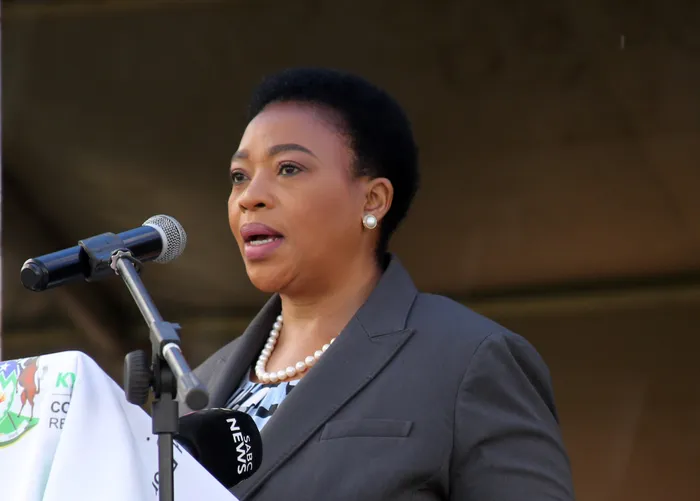President Cyril Ramaphosa reshuffles cabinet: Dr Nobuhle Nkabane dismissed as Minister of Higher Education

A Cabinet reshuffle by President Cyril Ramaphosa sees Nomusa Dube-Ncube emerge as the new deputy minister of Higher Education
Image: Tumi Pakkies / Independent Newspapers
IN A sudden shake up of his cabinet, President Cyril Ramaphosa has dismissed the controversy-plagued Dr Nobuhle Nkabane from her position as Minister of Higher Education and Training.
The change comes after ongoing scrutiny of Nkabane's decision-making and higher education policies, in light of the government's intentions to bolster that sector of education.
Nkabane's replacement is Buti Manamela, who served as the Deputy Minister of Higher Education, Science and Technology since October 2017, and previously held the position of Deputy Minister in the Presidency from 2014 to 2017.
This move is seen as a strategic step to ensure continuity while leveraging Manamela’s experience to navigate the complexities of the higher education landscape.
To further bolster the ministry, the president appointed former KwaZulu-Natal Premier, Dr Nomusa Dube-Ncube as the Deputy Minister.
Dube-Ncube brings a wealth of knowledge and political savvy having previously served as the MEC for Cooperative Government and Traditional Affairs.
The Presidency praised Dube-Ncube's extensive credentials, highlighting her commitment to public service amidst a challenging political climate.
The statement from the Presidency read, “Section 93(b) empowers the President to appoint no more than two deputy ministers from outside the assembly,” which underscored the government’s strategic approach to enhancing leadership within the department.
As these ministerial changes unfold nationally, tensions within the governing alliance (the Government of Provincial Unity) appear to be on the rise in KwaZulu-Natal.
The Inkatha Freedom Party (IFP) has pledged to defend the provincial government’s recent decision to place the struggling ANC led Umkhanyakude District Municipality under administration, during a media briefing session yesterday.
This controversial intervention comes despite accusations from the ANC that the IFP had of politicised the restructuring of local governance.
Both the IFP and ANC are members of the GPU.
President of the IFP in KZN, Velenkosini Hlabisa, refuted claims from the ANC that the provincial government's actions were politically motivated, instead insisting that the decision was based on objective financial assessments given the municipality's unfunded budgets and poor audit outcomes.
"This is not a political intervention; this is a Cabinet decision.
"As long as municipalities are passing unfunded budgets, Section 139 will apply," Hlabisa stated during a media briefing.
Section 139 of the country's Constitution empowers the provincial executive to intervene in a municipality, when they fail to fulfill their obligations.
KZN's Premier, Thamsanqa Ntuli, echoed this sentiment, citing that a unanimous decision was made within the Cabinet that included MECs from the ANC, thereby dispelling notions of targeted political actions towards ANC municipalities.
The ANC has vehemently opposed the administration of the Umkhanyakude District Municipality, labelling it a politically charged decision lacking justification.
A statement from the party (ANC) expressed their determination to challenge the intervention, calling for unity among supporters and communities to safeguard municipal governance against what they term an "opportunistic" political maneuver.
The ongoing conflict between the ANC and IFP has raised concerns about the possibility of instability in a province already known for its complex political dynamics.
As tensions rise, all eyes are on the implications of these developments for the governance of KZN, a province crucial to the broader national political landscape.
DAILY NEWS